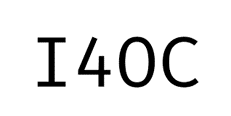Transparency and Open Science: Contributions to Promoting Higher Awareness and Adherence in Psychometric Research.
DOI:
https://doi.org/10.18050/psiquemag.v11i2.2064Keywords:
Open Science Framework (OSF), HARKing, P-haking, Reportes Estándares, Reproducibilidad, Preprint, Pre-reportesAbstract
We are in the presence of a great moment for the advancement of psychological science. Currently, we have a wide range of resources and sources to adhere to good research practices, which allow the development of an increasingly reliable, valid and reproducible discipline. Within responsible behavior in research, it is essential to promote adherence to transparency and open science practices. Although it is currently difficult to think that any researcher does not agree with these principles and practices, their implementation is not yet generalized or extended, neither in all disciplines and subdisciplines, nor equally in all countries. Here we are interested in focusing on measurement practices, in the field of psychometrics. We believe that transparent and open science practices are a viable and fundamental solution to counteract questionable practices in research and, especially, those related to questionable measurement practices. Focusing on these psychometric or measurement practices is essential, since the more general validity of our scientific findings depends on them. The ultimate goal of this research work is to offer a series of resources that facilitate the dissemination and adherence of these responsible behaviors in research, among institutions and researchers in Latin-American.
Downloads
Downloads
Published
Versions
- 2022-03-21 (3)
- 2022-03-21 (2)
- 2022-03-21 (1)
How to Cite
Issue
Section
License
Copyright (c) 2022 PsiqueMag

This work is licensed under a Creative Commons Attribution-NonCommercial-NoDerivatives 4.0 International License.
You are free to:
- Share — copy and redistribute the material in any medium or format
- The licensor cannot revoke these freedoms as long as you follow the license terms.
Under the following terms:
-
Attribution — You must give appropriate credit, provide a link to the license, and indicate if changes were made. You may do so in any reasonable manner, but not in any way that suggests the licensor endorses you or your use.












